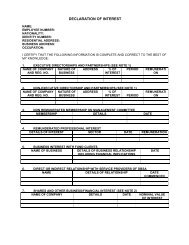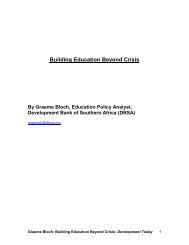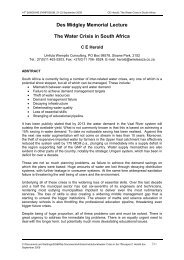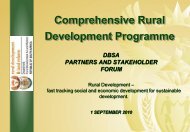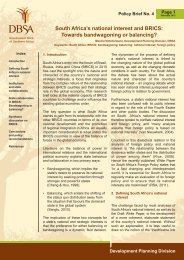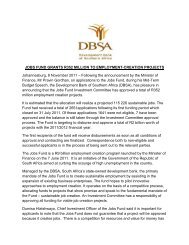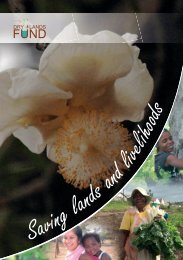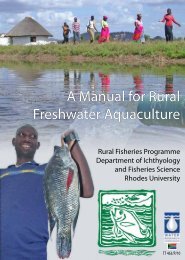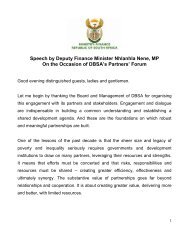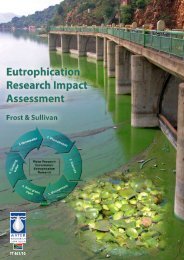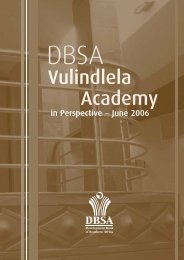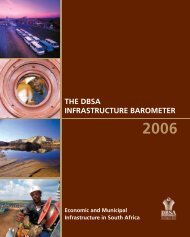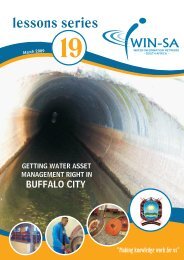A Knowledge Strategy
A Knowledge Strategy
A Knowledge Strategy
Create successful ePaper yourself
Turn your PDF publications into a flip-book with our unique Google optimized e-Paper software.
Information<br />
<strong>Knowledge</strong> building is fuelled by relevant and accurate information that is freely<br />
available and easy to access.<br />
Shared learnings<br />
A shared-learnings process is a short, action driven format allowing for the<br />
publication of insights, innovations, process improvements or hard lessons learnt.<br />
Publications of this nature are invaluable in sharing learnings and can be viewed as<br />
a direct deposit into the DBSA’s knowledge bank.<br />
Peer assists<br />
The peer-assist process is a structured and facilitated dialogue between peers to<br />
make experience-based know-how available to a group about to engage in a process<br />
or actions that have been executed in the past. Staff wishing advice or attempting to<br />
develope a new angle on a problem, may refer to a group of peers to gain greater<br />
insight. The peer-assist process generates a set of ideas and suggestions but does not<br />
constitute a transfer of responsibility to the group whose help is being sought.<br />
Project retrospectives<br />
A project retrospective is a process of thematic reflection that may be done after<br />
project completion or having reached important stages of a longer-term project. A<br />
retrospective should not be confused with an evaluation for control purposes. It is<br />
a learning opportunity that records valuable knowledge for the Bank.<br />
Communities of practice (thematic groups)<br />
The most sophisticated knowledge management tool in this suite is the formation of<br />
goal-directed communities of practice (COPs) or thematic groups. A group of experts<br />
collaborate in the sharing of their tools, ideals, practices and learning experiences<br />
related to a specific topic over an extended period. A COP has its own governance, is<br />
monitored and facilitated by a moderator and often makes use of some sort of network<br />
to communicate. A COP is similar to a group formed to fulfill an assignment, but has<br />
a longer life. The goal is not only advancing the knowledge of a specific subject of an<br />
individual, as in the case of COIs, but to create a set of validated knowledge assets that<br />
the Bank may record and draw on in improving its development impact.<br />
3.2.3 High-impact knowledge tools and processes<br />
Opportunities that exist for the application of knowledge management tools and<br />
processes have been identified. Recommendations have accordingly been<br />
formulated and are in the process of being implemented.<br />
Directory of expertise<br />
Opportunities arise in:<br />
• access to directories of expertise (internal and external) - especially relevant to<br />
the client-driven project planning and implementation phase for less complex<br />
28 Development Bank of Southern Africa



